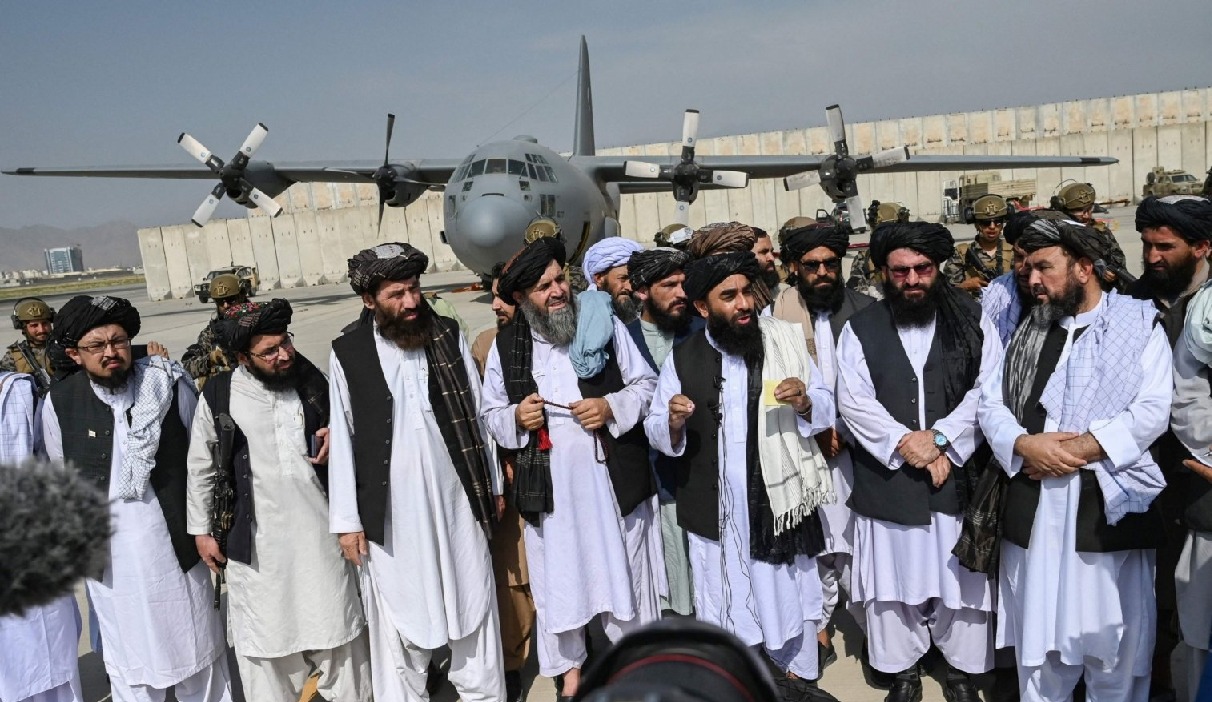On 27 May, the Voice of America with Islamabad dateline said that Russia’s foreign and justice ministries have told President Putin that Afghanistan’s ruling Taliban “can be removed” from the list of Moscow-designated terrorist organizations.
In 1999, the UN Security Council adopted resolution number 1267, which accused the Taliban of providing sanctuaries and training for terrorism. This was the time when the fighting between the US plus NATO forces was at its peak.
In the aftermath of this resolution, President Putin signed a decree by which Moscow not only implemented the Security Council resolution but also imposed sanctions on the Taliban. Russia had not forgotten the tough resistance of the Afghan opposition force, ultimately leading to the withdrawal of Soviet soldiers from Afghan territory.
In the year 2003, a verdict of the Russian Supreme Court declared the Taliban movement a terrorist movement and spoke of its illegal links with the armed forces of Chechnya. It further said that the Taliban had tried to seize power in three Central Asian states: Uzbekistan, Kyrgyzstan, and Tajikistan. However, no proof of these allegations was available with any independent inquiry.
Russian sources say that interaction with the Taliban had been going on for some time, and serious discussions were underway. Offering formal recognition to a state that stands listed as a terrorist is to be preceded by first delisting it.
Again, delisting will take place only after the charges brought against the designated country are removed. Russians must have been discussing these crucial issues when talks were opened. Russian sources say that the progress in talks with the Taliban was conveyed to the top leadership in Moscow.
Russia’s Perception
The question is, what is the perception of Moscow about the current situation in Afghanistan, particularly with respect to adherence to the internationally recognized human rights norms with particular reference to the rights of women?
According to the Deccan Herald of 21 April, though Moscow has not so far taken the final decision yet observers have noted a growing cordial relationship between Moscow and Kabul in recent months.
Moscow invited the Taliban representatives to an international economic forum in Kazan. It is to be noted that Russia was one of the few nations that accredited a Taliban diplomat when the Taliban took over the control of Kabul.
Interests & Objectives
Taliban wants international sanctions imposed on her to be withdrawn so that Afghanistan retakes its seat at the United Nations General Assembly.
She would like her frozen assets to be released so that the country’s economy is revitalized. Afghanistan has in mind to boost its economy through the trade of the rich mineral called Lapis Lazuli — the precious stone in Badakhshan mines —through a trade corridor linking Afghanistan to Istanbul and Europe besides the Uzbekistan-Afghanistan – Pakistan rail connectivity.
Afghanistan is eager to come out of isolation and become an active member of the international community to benefit from trade and commerce with near and distant countries, Recognition by Russia would open the way for more countries to give her recognition
Russia’s Interests
Russia has a history of relations with Afghanistan, which, however, suffered interruption when the Soviet Union launched an attack on Afghanistan in 1979.
Now, Russia wants to raise its profile as a peacemaker, helping Afghanistan recover its rightful place in the comity of nations. In a sense, restoration of relations would mean the title of security provider.
Moscow considers Central Asia a zone of historical importance and has a security agreement with the erstwhile Soviet Central Asian States. The establishment of a powerful centralized government in Kabul is a guarantee to the security of Central Asia when both China and the United States of America are deeply interested.
Russia’s 2023 foreign policy plan mentions prospects for Afghanistan’s integration into the Eurasian space for cooperation.

Geo-Strategic Implications
Russo-Afghan reconciliation has implications for the ongoing rivalry between Russia and the West. After the Ukrainian war, it became clear that Russia would be trying to register friendship and better relations with as many countries as possible to strengthen its stand on the Eurasian conflict.
Russia would like to revive its traditional role of protector of religions and cultural traditions. From her earlier mistake, Russia has learned that undue interference in the internal affairs of a sovereign state is a risky and unwise policy.
The world community may have brought a resolution; however, the Taliban is a terrorist organization and promoter of terrorists, but the Afghan situation has to be seen from Afghan glasses.
Taliban remains a force to be reckoned with when the influence and impact of Islam are taken into account in contemporary history. Russia is going to take a big step that will bring about a cognizable change in the regional strategy.
However, so far, it is not clear whether Moscow has succeeded in preparing the mind of the Taliban for lifting all restrictions on Afghan women so that critics will not get a chance to oppose or criticize Afghanistan for failing to behave as a responsible and humane government.
- Prof. KN Pandita (Padma Shri) is the former director of the Center of Central Asian Studies at Kashmir University.
- This article contains the author’s personal views and does not represent EurAsian Times’ policies/views/opinions in any way.
- The author can be reached at knp627 (at) gmail.com